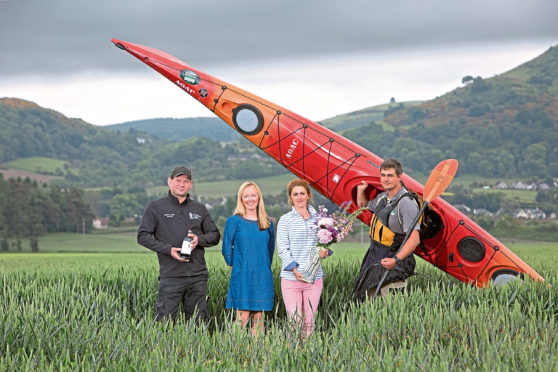A consultation on the future of the rural economy in Scotland was launched yesterday by the National Council of Rural Advisers (NCRA).
The council, which was established at last year’s Royal Highland Show, is an independent body tasked with giving advice and recommendations on rural policy to the Scottish Government.
The paper, Discussion Document: A Rural Conversation, launched yesterday focuses on three key areas of farming life – people, vision and infrastructure.
The consultation process will last six weeks and features 10 questions.
These include how to create opportunities for employment, how to most effectively represent the contribution and value of rural Scotland, what skills are needed to encourage entrepreneurship and how to ensure that the rural infrastructure is fit for purpose.
NCRA co-chairman Alison Milne said that the rural economy had “huge untapped potential” which the council was building a strategy to unleash.
“This is a great chance for change and we need input from as many people as possible, which is why we are holding this nationwide consultation,” she said.
“So whether you are a B&B owner in the Highlands or Dumfriesshire, an adventure sports provider in Lochaber or Perthshire, a fisherman in the north-east, a teacher or nurse in the Scottish Borders or a farmer in Fife, we want to hear from you.”
Another council member Sarah Allison, who is a former agriculture and rural affairs chairman at the Scottish Association of Young Farmers’ Clubs, said: “Now is the ideal time to be bold and ambitious and change the traditional narrative around the rural economy of Scotland and the opportunity it presents. We need you to look at all the recommendations that we have outlined and to bring your creativity, ideas and vision to help us make our rural economy the heartbeat of Scotland’s future.” Rural Economy Secretary Fergus Ewing welcomed the launch of the consultation.
He said: “The council has called for a defined and ambitious strategy for Scotland’s rural economy that develops natural and human capital, competitiveness, robust infrastructure and social inclusion is compelling.
“I believe that policy should be driven by people, which is why I particularly welcome the focus in this report on generating inclusive growth, tackling inequalities in the rural labour market and creating quality job opportunities – a challenge I readily accept.”
